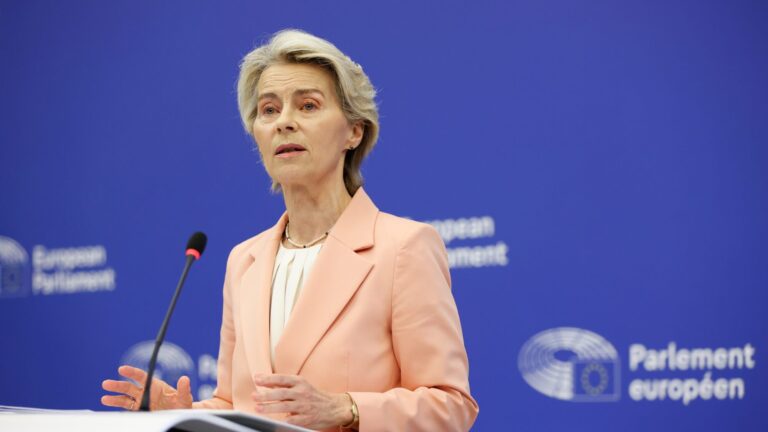The European Commission is looking to bolster the capabilities of Western Balkan nations to keep illegal migrants from entering the EU.
Reducing the number of illegal entries by migrants into the EU through the Western Balkan route—a trek that starts in Turkey and goes through Greece and various Balkan nations before ending up at the Hungarian border—is an increasing concern to many EU member states.
Thousands of prospective asylum seekers, mainly from Afghanistan and Syria, travel through the Western Balkans in an effort to seek protection in an EU member state. “Arrivals along the Western Balkan route have tripled compared to last year,” Margaritis Schinas, Vice-President for Promoting our European Way of Life, noted.
The EU’s border force, Frontex, said they detected almost 130,000 irregular border crossings at EU external borders on all Western Balkan routes between January and November this year. On Monday, December 5th, on the eve of the EU-Western Balkans Summit, the Commission unveiled its action plan to stem the tide.
In light of the approximately 90,000 arrivals over the past year (a 50% increase from last year) via the Central Mediterranean route, the European Commission sees the necessity for significant investments in better border controls as it reaches out to non-EU nations to secure their cooperation. In November, it launched a similar action plan specifically aimed at that Central Mediterranean route.
The plan, which is composed of “20 operational measures structured along 5 pillars,” calls for larger involvement of Frontex. While the Warsaw-based agency currently has some 500 border guards on staff in the region along the EU’s borders, its new mandate would allow it to increase that number.
The Commission says the agency has secured status agreements with Albania, Montenegro, Serbia, and North Macedonia, allowing Frontex guards to be stationed at their borders. To the tune of €40 million, it will focus particularly on Montenegro, Bosnia and Herzegovina, Serbia, and Kosovo for the provision of border management, surveillance equipment, and training. This assistance package would be renewed in 2023.
It also comes with promises to step up the returns of unwanted migrants, which would equally apply to those from within the Western Balkans. This would however entail getting the Balkan states to sever visa-free agreements with countries whose nationals then try to cross into the EU.
Schinas described those agreements as unacceptable loopholes which allow people to gain “illegal access into the European Union.” Last October, Serbia, under pressure from the EU, cut such ties with Burundi and Tunisia. Other countries from which migrants are entering Serbia without a visa before attempting to enter the EU include Morocco, Egypt, India, and Turkey.
Alignment between visa policies of the EU and Western Balkan nations (which seek to become bloc members) is an important prerequisite for these candidate members to meet before accession is granted.
Commenting on the plan, Schinas, who visited four Western Balkan countries in October, said that “migration is a common challenge and something we must tackle jointly, leaving none of our Member States and Western Balkan partners alone with the challenges they are facing.” The plan will be further discussed on Thursday, December 8, among EU interior ministers in Brussels.





